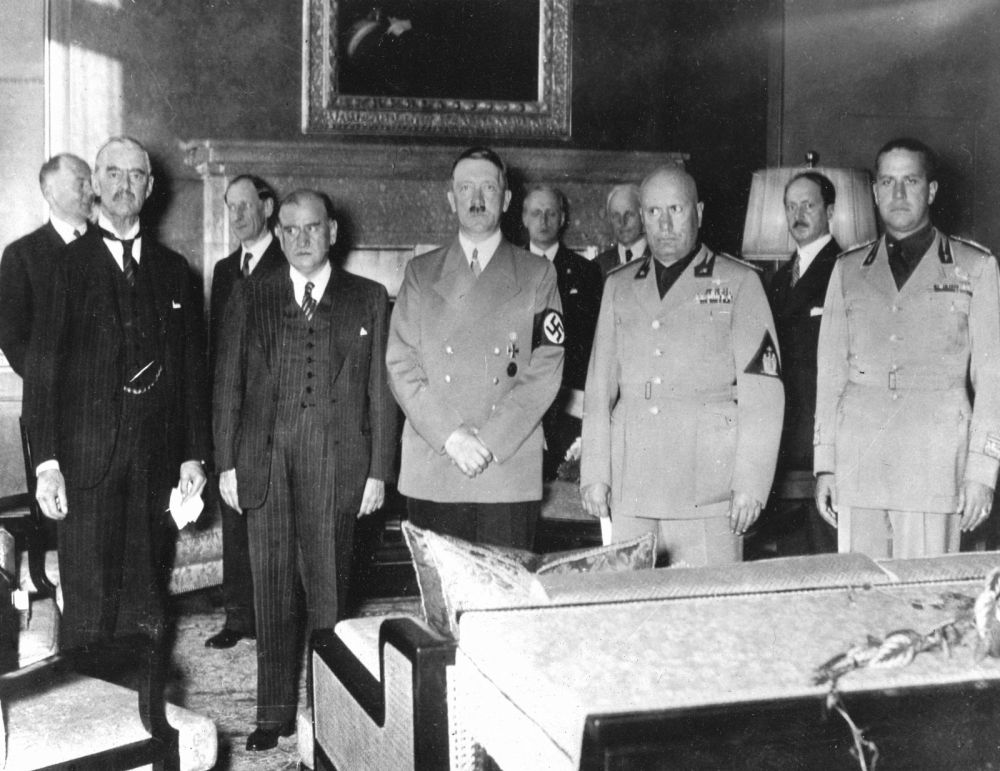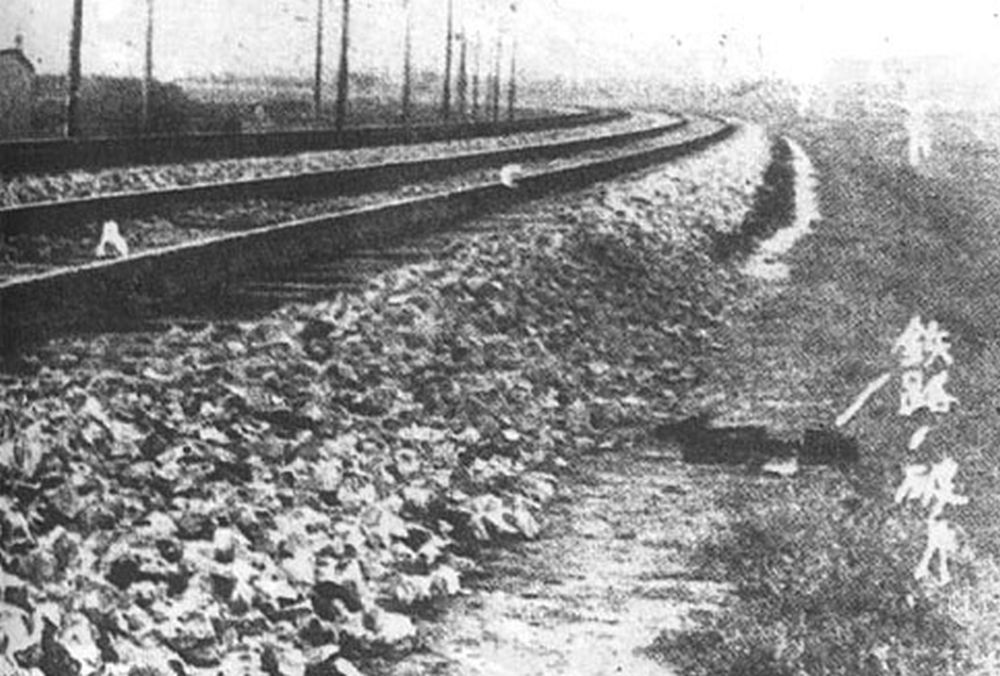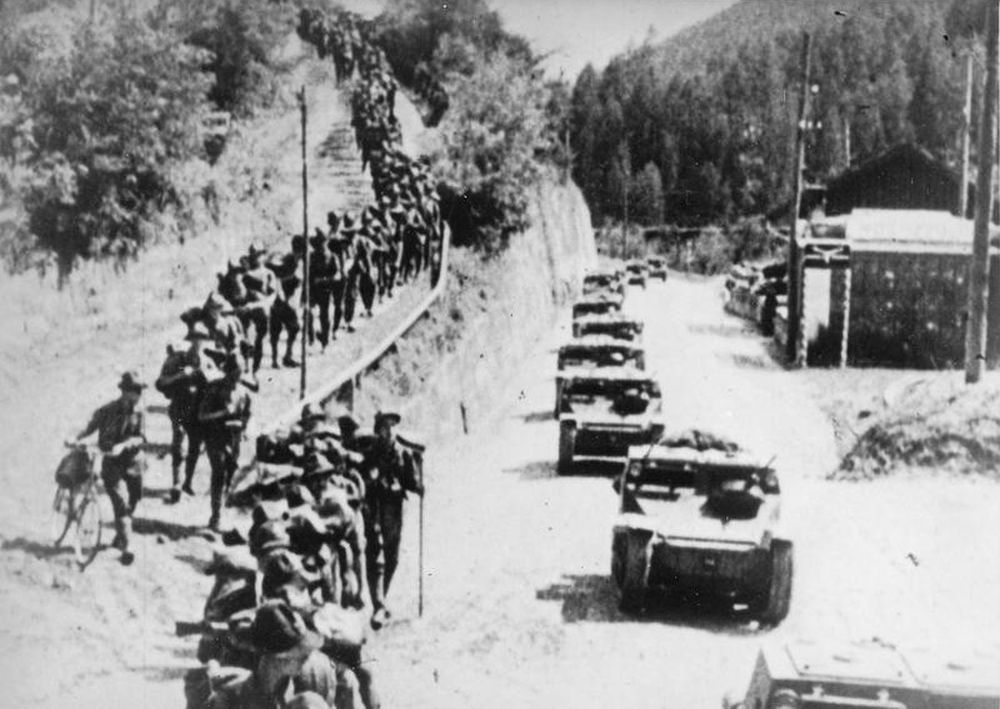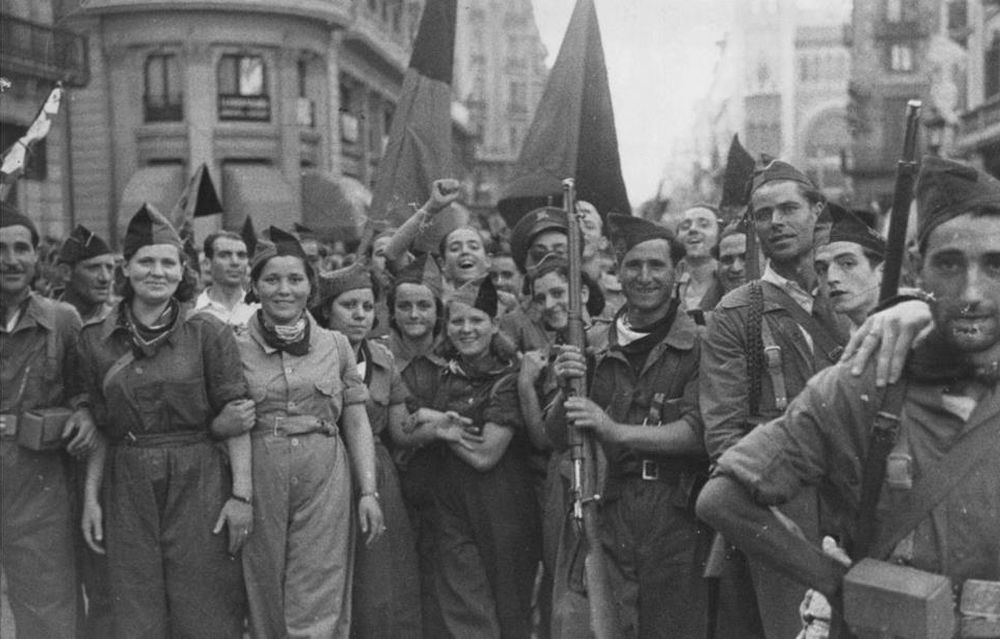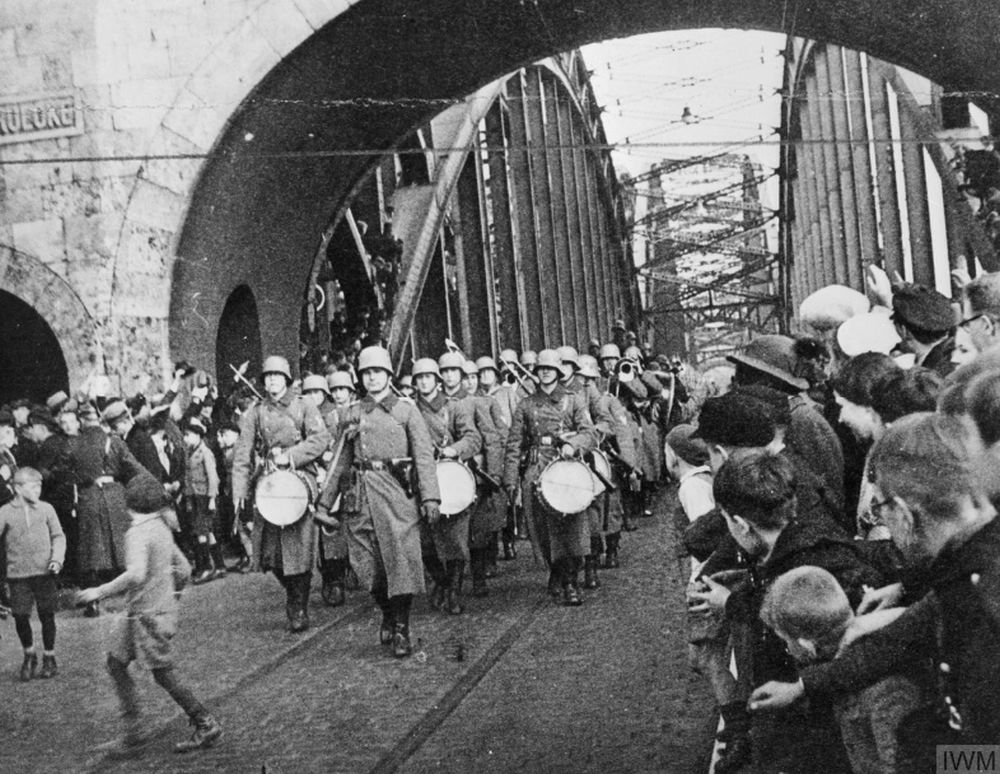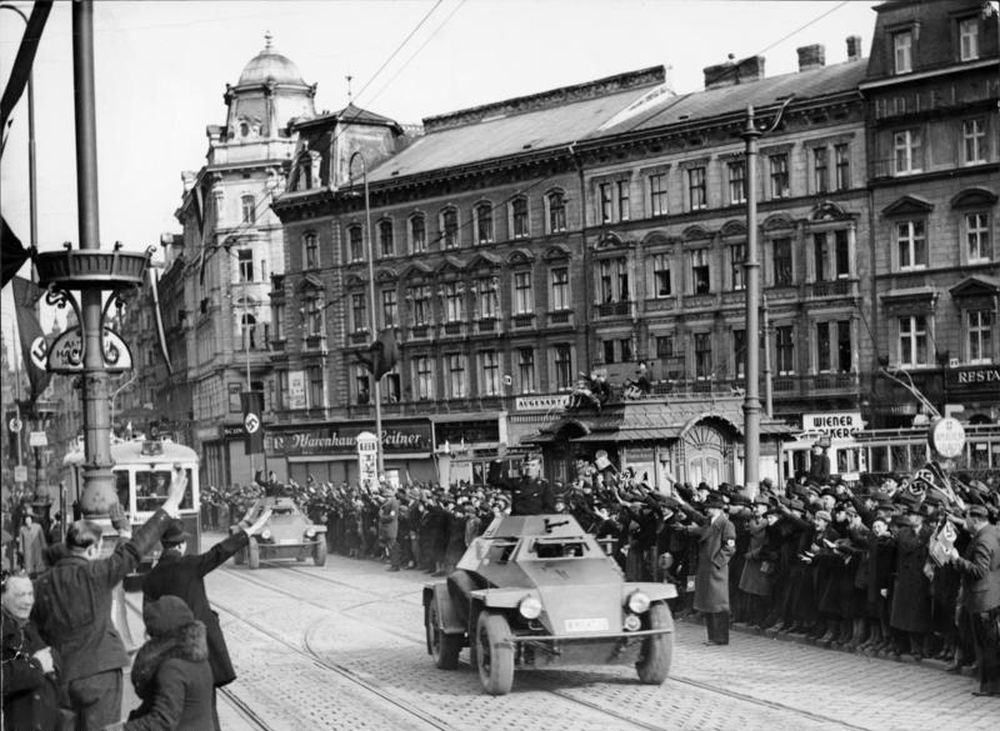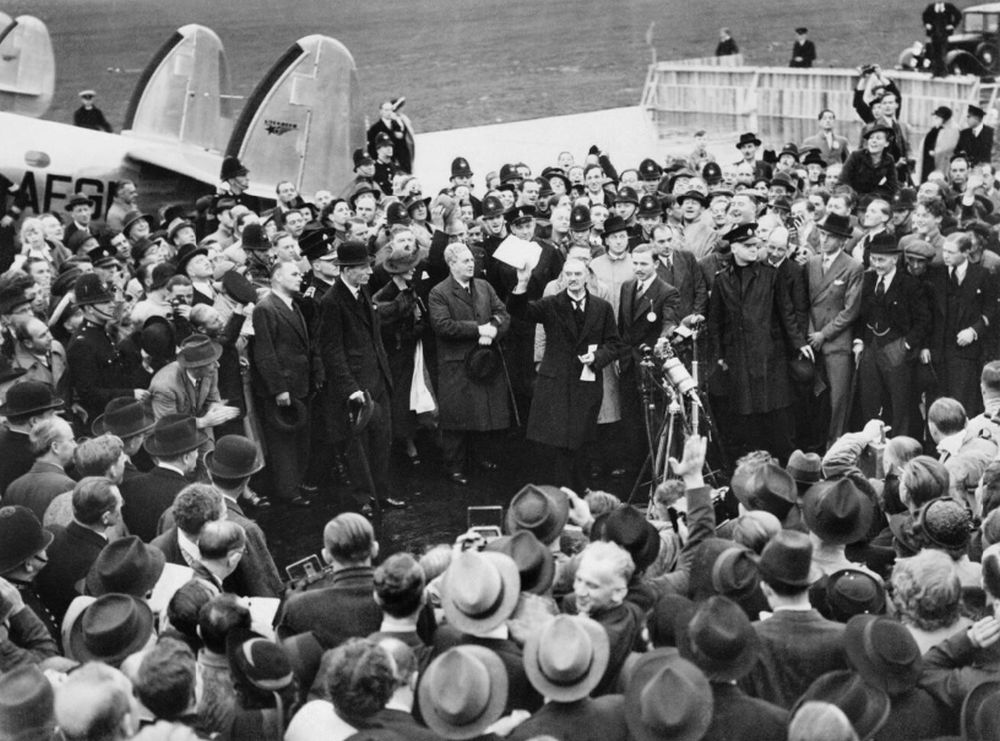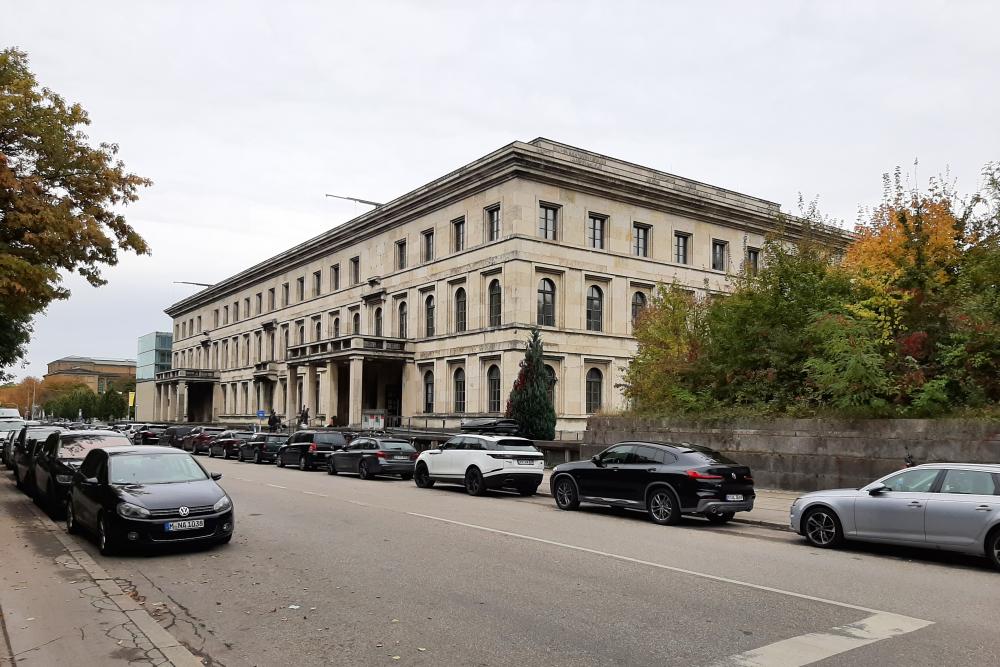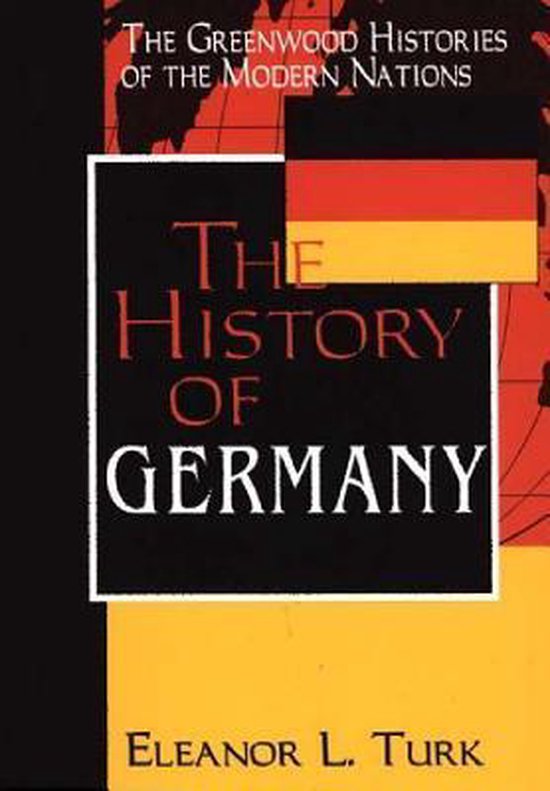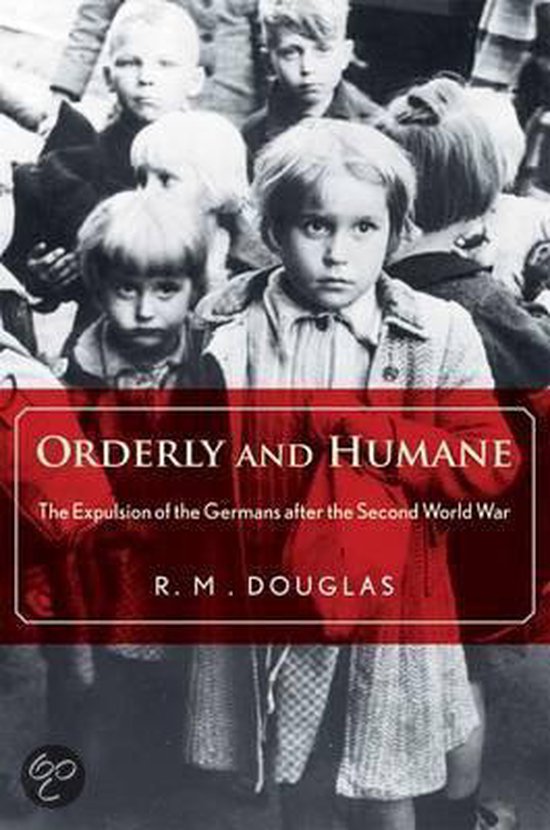Introduction
On September 30, 1938, an agreement was reached in Munich which shocked the world and would decide future developments. The way in which he achieved this convinced Adolf Hitler he had been given a free hand in Europe. It was clear to him that France and Great-Britain were not yet ready for war and they wouldn't establish a front with the Soviet Union against him. The events that followed would plunge Europe, and later on the entire world, into a war that would be known as the Second World War.
Definitielijst
- Soviet Union
- Soviet Russia, alternative name for the USSR.
The Treaty of Versailles
In order to understand the events of 1938 more clearly, we have to go back to the termination of the First World War which ended with an agreement known as the Treaty of Versailles of June 28, 1919 which severely humiliated Germany. France was allowed to rob Germany of her coal unhindered, eastern Prussia was cut off from the motherland, Germany was compelled to make huge reparation payments and her air force and navy all but ceased to exist. However, not only Germany was displeased. Countries such as Poland, Hungary and Italy had hoped and expected to gain far more from the negotiations.
Although the agreement became known by the name Treaty of Versailles, it was just one of the many treaties that were signed around Paris. Versailles determined Germany's future.
Negotiations in St. Germain and at Trianon were at least as important where the future of respectively Austria and Hungary was determined. To break these former powers, the states of Yugoslavia, (Croatia, Slovenia and Serbia) and Czechoslovakia were established.
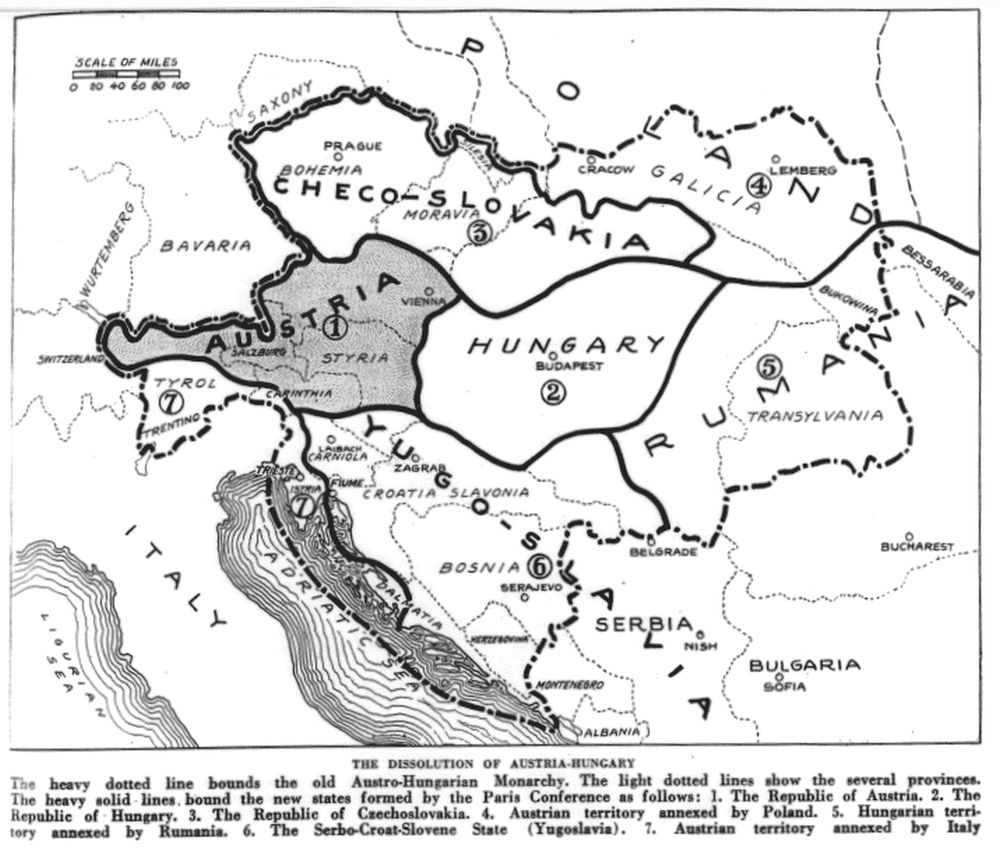
The partioning of Austria-Hungary and the creation of Czechoslovakia as published in the paper. Source: The Independent, (New York), June 14, vol. 98, 1919, p. 391
The negotiations in St. Germain, in particular in Castle St. Germain-en-Leye, ended with an agreement signed on September 10, 1919[1] This treaty determined the future sphere of influence and the size of Austria. The nucleus of the new country Czechoslovakia was made up of Bohemia and Moravia and a part on Silesia was also added to the country. The treaty of Trianon, signed on June 4, 1920, determined the borders of Hungary and parts of this country were also added to the new state.[2]. In this way, a new state was formed inhabited by large numbers of ethnic minorities and majorities of Polish, German, Austrian and Hungarian origin. A large part of the German minority, the Sudeten-Germans, was not informed about their incorporation in Czechoslovakia. They also were hardly involved in the development of the country. The national sentiment was mainly focused on Czechs and Slovaks[3]. This in particular was to play a role later on in the run-up to the Second World War.
Definitielijst
- First World War
- Took place from 1914 till 1918 and is also named The Great War. The conflict started because of increased nationalism, militarism and neo-colonialism in Europe. Two alliances battled one another during the 4-year war, which after a dynamic start, resulted into static trench warfare. The belligerents were the Triple Alliance (consisting of Great-Britain, France, and Russia; later enlarged by Italy and the USA, amongst others) on the one hand and the Central Powers (consisting of Germany, Austria-Hungary, Bulgaria and the Ottoman empire) on the other hand. The war was characterized by the huge number of casualties and the use of many new weapons (flamethrowers, aircraft, poison gas, tanks). The war ended in 1918 when Germany and its allies surrendered unconditionally.
The League of Nations
In order to nip future conflicts in the bud, the League of Nations was founded. Although contacts within the League led to various pacts, agreements and normalization of relations in the course of the years, the League itself has never gained much respect. In particular the lack of means to actually intervene frequently caused the accused party to walk away without a solution being achieved. A country such as the USA, which played a major role in ending the First World War and the establishment of the League wasn't even a member.
Many countries attempted to secure their future by signing mutual agreements, bypassing the League of Nations which made it redundant for them. The lack of power of the League is illustrated by a number of major events prior to the Second World War in which it was actually unable to offer a solution.
- 1931 Japan invades Manchuria
- 1935 Italy invades Ethiopia
- 1936 The Civil War erupts in Spain
- 1937 Japan invades China
- 1938 The Anschluß of Austria with Germany and the occupation of part of Czechoslovakia by various countries
- 1939 Italy invades Albania and Germany invades Poland
Definitielijst
- First World War
- Took place from 1914 till 1918 and is also named The Great War. The conflict started because of increased nationalism, militarism and neo-colonialism in Europe. Two alliances battled one another during the 4-year war, which after a dynamic start, resulted into static trench warfare. The belligerents were the Triple Alliance (consisting of Great-Britain, France, and Russia; later enlarged by Italy and the USA, amongst others) on the one hand and the Central Powers (consisting of Germany, Austria-Hungary, Bulgaria and the Ottoman empire) on the other hand. The war was characterized by the huge number of casualties and the use of many new weapons (flamethrowers, aircraft, poison gas, tanks). The war ended in 1918 when Germany and its allies surrendered unconditionally.
- League of Nations
- International league of Nations for cooperation and security (1920 – 1941). The League was located in Geneva, in neutral Switzerland. During the 1930s the league of nations could do little against aggressive behaviour of Japan, Manchuria, Italy, Abyssinia and Hitler. The league of nations was in fact the predecessor of the United Nations.
Japanese invasion of Manchuria
This attack was completely separated from the developments in Europe. After all, it took until 1936 before Japan would join the Axis powers.
Influenced by the West, Japan had modernized well over the years and she gradually became a significant factor in the region. The policy of the United States and the Soviet Union in regard to the trade with China was gradually considered a threat by Japan. In 1931 she felt strong enough to expand her influence in the region and secure her trade relations. An incident in Mukden was used as an excuse to intervene and within a few months, Manchuria was occupied completely. In March 1932, Japan established a puppet government in Manchukuo, (as the country was called from then on) headed by the last Chinese Emperor of the Mantsju dynasty, Henry Pu Yi. Nothing happened without consent from Japan though which even stationed a permanent army in the country.
Definitielijst
- Manchukuo
- Name that the Japanese gave to the puppet state which they established in 1932 merging the Chinese Manchuria and Jehol.
Italian invasion of Ethiopia
Benito Mussolini had never kept his wish secret to make Italy as powerful again as the Roman Empire used to be. As the Duce didn't dare to enter into a conflict with Great-Britain and Germany, he opted to expand the colonial power of his country. The old empire of Abyssinia seemed a perfect prey. Not a single other power laid claim to the area and other colonials had the idea the Duce could be appeased by giving Italy a free hand. On October 1935, a relatively modern armed Italy invaded the helpless country and forced the population to its knees in a bloody war.
The Spanish Civil War
After a long period of dictatorship by the Spanish Royalty, elections in 1930 showed that the king could no longer count on support from the population. Spain became a republic. Stabilization turned out to be impossible and the murder of a monarchist on July 13, 1936 triggered a revolt led by Francisco Franco. Due to his Nationalist-Fascist attitude, this soon turned into a conflict between a Fascist and a Communist doctrine. Franco's Fascists were openly supported by Adolf Hitler who eventually made use of the conflict to train his troops for warfare by dispatching the Condor Legion. The republic itself was supported materially as well as financially by the Soviet Union and personnel consisting of volunteer warriors from numerous countries. Eventually, Madrid was compelled to surrender on March 28, 1939 and Spain became a Fascist dictatorship.
Definitielijst
- Condor Legion
- Name of German air force (mainly) units that fought alongside General Franco during the Spanish civil war from 1936-1939.
- dictatorship
- A form of government where the power in a country is in the hands of one person, the dictator. Originally a Roman regime in case of an emergency where total power would rest with one person during six months in order to face a crisis.
Occupation of the Saar region
The Treaty of Versailles stipulated that the German Saar region would be cut off from Germany for a period of 15 years. In 1935 the population was allowed to determine the future in a general election. In a cunning process of propaganda, Hitler managed to have 90% of the population opt for incorporation into Germany. Hitler derived so much courage from this that he established the Luftwaffe on March 15, 1935 and introduced compulsory conscription on March 16 in violation of the Treaty of Versailles. One year later, on March 7, 1936, Hitler made his next move by having his troops march into the Rhineland, demilitarized by the Treaty of Versailles. Again, the rest of the world did nothing. Occupation of the Rhineland was a major gamble. The Wehrmacht was from ready to enter into an armed conflict with France. Therefore, Hitler had ordered his troops to withdraw immediately in case France would attack. Nothing happened though so Hitler felt increasingly more confident about his case.
Definitielijst
- Luftwaffe
- German air force.
- propaganda
- Often misleading information used to gain support among supporters or to gain support. Often used to accomplish ideas and political goals.
- Rhineland
- German-speaking demilitarized area on the right bank of the Rhine which was occupied by Adolf Hitler in 1936 after World War 1.
- Wehrmacht
- German armed military forces, divided in ground forces, air force and navy.
Austrian Anschluß
In article 80 of the Treaty of Versailles and in article 88 of the treaty of St. Germain it was set forth that Germany and Austria would remain separated indefinitely.
The Austrian government, headed by Bundeskanzler Kurt Schuschnigg, gave in to the intimidations by Adolf Hitler and the chief of the OKW (supreme command of the army) General der Artillerie Wilhelm Keitel and appointed the National Socialist Dr. Arthur Seyss-Inquart as minister. In a last-ditch attempt to keep Hitler out, Schuschnigg ordered a plebiscite about Austria's independence. A furious Hitler threatened with an attack in case power wasn't immediately passed to the Nazis. Austria, not wishing a military conflict for which she would have been totally unprepared for and unable to, gave in to the pressure and power passed to Seyss-Inquart.
His first move was to ask Germany for help and on March 12, 1938, German troops crossed the border. Once again, not a single country intervened in the next violation of the treaties from after the First World War.
Definitielijst
- First World War
- Took place from 1914 till 1918 and is also named The Great War. The conflict started because of increased nationalism, militarism and neo-colonialism in Europe. Two alliances battled one another during the 4-year war, which after a dynamic start, resulted into static trench warfare. The belligerents were the Triple Alliance (consisting of Great-Britain, France, and Russia; later enlarged by Italy and the USA, amongst others) on the one hand and the Central Powers (consisting of Germany, Austria-Hungary, Bulgaria and the Ottoman empire) on the other hand. The war was characterized by the huge number of casualties and the use of many new weapons (flamethrowers, aircraft, poison gas, tanks). The war ended in 1918 when Germany and its allies surrendered unconditionally.
- OKW
- “Oberkommando der Wehrmacht”. German supreme command of the Armed Forces, Army, Air Force and Navy.
From prelude to Fall Grün
In 1933, the inferior position of the Sudetendeutsche led to the establishment of the Sudetendeutsche Partei (SdP) by Konrad Henlein. The party and Henlein openly opposed Czechoslovakia. During local elections, he managed to win two-thirds of the votes in the German speaking districts of Czechoslovakia.[4].In 1935, the party had become the second largest mainly because of the Czechs and Slovaks voting for many different parties.
Shortly after the Anschluß on March 18, 1938, the Soviet Union asked for an alliance against the Nazis. Neville Chamberlain's reaction was negative. Although Germany had violated old pacts time and again and could be expected to continue doing so, Chamberlain remained convinced of a possible peaceful solution. In his opinion, an anti-Fascist alliance would surely fuel the threat of war. This reaction would have caused the Soviets to think twice and would surely have attributed to their decision to enter into a non-aggression pact with Germany in 1939.
On March 28, 1938, Adolf Hitler and Konrad Henlein met in Berlin. As a result, Henlein made a series of demands to the leader of the Czechoslovakian government, Edward Benesj. In this Karlsbacher Programm Henlein demanded autonomy for the German minorities in Czechoslovakia[5]. Benesj responded by granting the German minority more rights but autonomy was a bridge too far. During the next local elections in May 1938, the SdP won 88% of the votes by the German minorities.
Hitler unleashed even more propaganda and eventually, he managed to trigger a revolt in the area which was quelled mercilessly by the Czechoslovakian authorities. The call for autonomy became louder and louder though and was strongly supported by Hitler. Great-Britain eyed the developments with growing suspicion and considered it necessary to intervene. Instead of taking strong action by guaranteeing the independence and indivisibility of the country, the road of diplomacy was taken.
Definitielijst
- non-aggression pact
- Agreement wherein parties pledge not to attack each other.
- propaganda
- Often misleading information used to gain support among supporters or to gain support. Often used to accomplish ideas and political goals.
- Soviet Union
- Soviet Russia, alternative name for the USSR.
The Munich Agreement
In order to clear the air, on September 15, 1938, Benesj made a proposal to Hitler in secret. He offered Germany an area of 2,317 square miles provided Hitler would permit the mandatory relocation of the German minorities in Czechoslovakia to that area. Reportedly, Hitler didn't respond to this at all[6].
That same day, British Prime Minister Neville Chamberlain went to Hitler's summer residence in Berchtesgaden, the Obersalzberg in person. Hitler made his demands concerning the Saar area clear. First and foremost, he demanded autonomy. Chamberlain let it be known he would speak to France about it and so it happened. After these negotiations, they indicated to Czechoslovakian Prime Minister Benesj he should not let it come to war as he didn't have to expect any support. On September 22 Chamberlain could inform Hitler that the Sudetenland could introduce autonomy. For Hitler though, this wasn't sufficient anymore. He wanted to have to opportunity to invade the region at all times. This however was too much for Chamberlain.
On September 23, Czechoslovakia mobilized her troops and war seemed inevitable. At that moment, Benito Mussolini intervened and proposed himself as mediator. On September 29, Hitler, Mussolini and Chamberlain met in Munich to solve the Czechoslovakian question. The nearest major power, the Soviet Union and the subject of the meeting, Czechoslovakia were not invited. Édouard Daladier and Chamberlain fully agreed with all German demands. Hitler was given a free hand and on October 1, German troops marched into the Sudetenland.
Definitielijst
- Soviet Union
- Soviet Russia, alternative name for the USSR.
Follow-up
This agreement however almost meant the end of the state of Czechoslovakia. In supplements of the treaty it had been agreed that the claims of Poland and Hungary would also be arranged. In negotiations between the countries involved, not much was left of the territory. During the following talks between Germany and Czechoslovakia, about issues such as free passage, open borders etc., Germany steadily increased the pressure. In the end, Hitler demanded the demobilization of all Czechoslovakian troops.
The country couldn't agree with this. Yet an attempt was made to take the diplomatic road and Hitler changed tactics again. He forced the Slovakian government to demand autonomy. Although it was tried to appease Poland and Hungary, this wasn't entirely successful. These countries still claimed part of the Slovakian territory. Hitler now offered the Slovakians a choice: either they demanded autonomy of the Czech part, or they were left to the mercy of Poland and Hungary. In exchange for this autonomy, Hitler would guarantee the independence of Slovakia, under German influence of course.
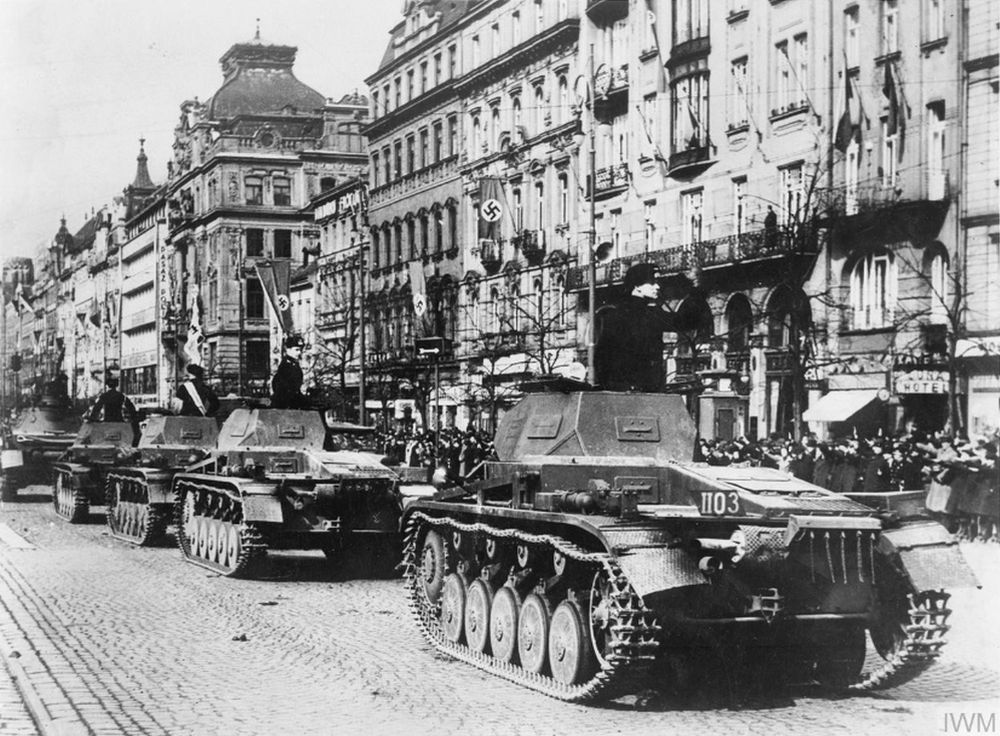
German PzKpfw II tanks on Wenceslas Square in Prague, April 20, 1939 Source: Imperial War Museum IWM MH 13154
Cornered, negotiations were started. On March 9, 1939, these bogged down completely and the Czech government occupied all strategic positions in Bratislava, the Slovakian capital. In response to this, Hitler made an ultimatum to Prague. On March 14, Bratislava declared the independent state of Slovakia and meanwhile, Hungarian troops invaded the helpless region of Ruthenia. Eventually, the pressure on Czech negotiators Hácha and Chvalkovsky was so intense, they felt compelled to sign a document submitted by Hitler, in which they abstained from their own sovereignty. At that moment German troops already crossed the border into Czechia. The state of Czechoslovakia had ceased to exist and the world did nothing. Hitler's road to more lay wide open.
Notes
- The New York Times. 11 September 1919. p. 12
- Treaty of Trianon, Wikipedia
- Douglas, 2012 Page 9
- Turk, 1999, p 123
- Noakes & Pridham, 2010, 9 100
- Douglas, 2012, p 18
Information
- Article by:
- Wilco Vermeer
- Translated by:
- Arnold Palthe
- Published on:
- 12-01-2023
- Last edit on:
- 23-01-2023
- Feedback?
- Send it!
Related sights
Related books
Sources
- DOUGLAS, R.M., Orderly and Humane, Yale University Press, 2012.
- MCDONOUGH, F., Neville Chamberlain, Appeasement and the British Road to War, Manchester University Press, Manchester, 1998.
- NOAKES, J. & PRIDHAM, G., Nazism 1919-1945, Liverpool University Press, 2001.
- TURK, E.L., The History of Germany, Greenwood Publishing Group, 1999.
- Munich Agreement, translation of al the documents
- Austrian treaty signed in amity, The New York Times. 11 September 1919. pag. 12
- Treaty of Tianon (geraadpleegd: 16 juni 2020)
